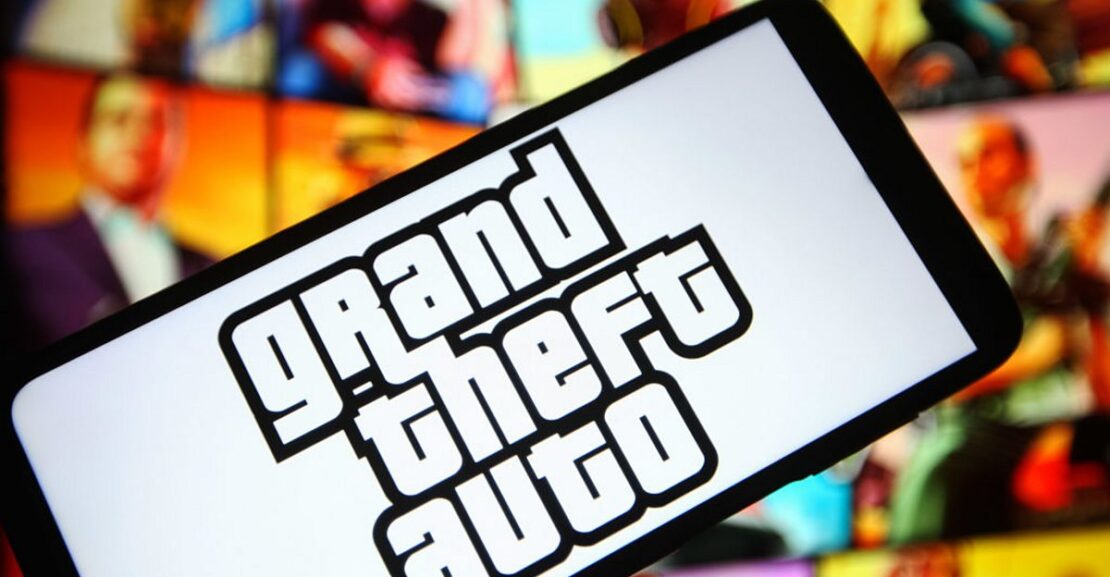[ad_1]
This is where GTA’s use of real-world pop culture also started to sing. Radio stations, complete with presenters, satiric advertisements and underground and popular licensed music, have been a touchstone of the series since its inception. Fans fell in love with the high-concept reality-adjacent transmissions that flourished as GTA made the shift to 3D. In later games like San Andreas, radio stations would become essential for fleshing out in-game characters and building a world that felt persistent and realistic to players.
Many will be familiar with Lazlow Jones, who worked with Rockstar co-founder Dan Houser to write the radio stations and plays a fictionalised version of himself in the games.
“For me, it was about trying to make the GTA stations authentic to what I knew about radio and also to point out what was ridiculous about radio,” said Jones, in Episode 2 of Bugzy Malone’s Grandest Game. “You know, for example, if you work in radio, the people calling the station are not your fans, the people that call in are insane or lonely.
“We made fun of left-wing loonies, right-wing crazies, rednecks, intellectual jerks… popstars…” Jones continued. “The shows in GTA are a satire on America, but they also tie into the vibe of the game.”
Nowadays, legendary artists and tastemakers like Skepta, Julian Casablancas, ROSALÍA and Frank Ocean all host their own stations within GTA Online, curating a wide range of genres and exposing a treasure trove of new music to the masses. Rockstar’s record label CircoLoco Records, founded in 2021, feels like a natural culmination of the series’ dedication to music culture. The series is such a cultural phenomenon that it inevitably influences itself.
GTA’s unique cinematic aspirations have only grown over the years too. From Twin Peaks’ Kyle MacLachlan in GTA 3 to Goodfellas’ Ray Liotta as protagonist Tommy Vercetti in Vice City and Samuel L. Jackson’s Officer Tenpenny in San Andreas, celebrity voice actors brought blockbuster names, credibility and weight to the series’ narratives.
But that doesn’t mean Rockstar wanted to translate Grand Theft Auto to the silver screen, at least back in the early 2000s, when the offer was reportedly on the table. “I remember taking a call at about 4 AM from a producer in Los Angeles with an offer to make a film, and he said, ‘We’ve got Eminem to star, right, and it’s a Tony Scott film, 5 million on the nose, are you interested?’,”said Kirk Ewing, an agent and games industry veteran close to the developers in Episode 2 of Bugzy Malone’s Grandest Game.
“And I phoned up Sam, and I said look. Listen to this. They want Eminem in the Grand Theft Auto movie and Tony Scott to direct, and he said ‘not interested,” Ewing continued. “And at that point, they withdrew from any conversation about making a film when they realised that the media franchise that they had – what they had was bigger than any movie that was going on at the time,” he continued.
With a consistently broad cast of memorable (sometimes still viral) side characters and a taste for lampooning pop culture, Rockstar’s games have thrived thanks to the unique creative possibilities of the video game medium and grown to feel like big-budget drama series with ensemble casts in their own right. And while in Grand Theft Auto V, the game’s narrative still firmly has its tongue in its cheek, you need only look to Rockstar’s most recent game, 2018’s Red Dead Redemption 2, with its filmic slow-burning tragedy of a story, to see the maturing influence of these early ideas of blending the silver screen with the CRT.
Not that GTA invented this idea of putting actors into games — see David Bowie’s appearance in 1999’s Omikron: The Nomad Soul — but as of late, games like Death Stranding, Cyberpunk 2077 and next month’s The Callisto Protocol all feature talent from the silver screen in meaningful roles.
[ad_2]
Source link
